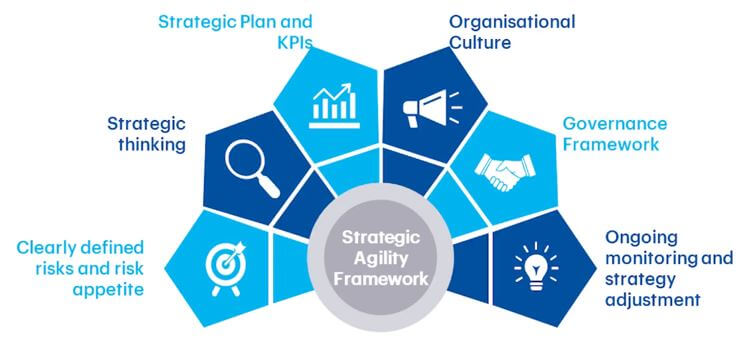Importance of Organisational Resilience
Amongst many reasons, one crucial reason to integrate resilience strategies into your organisation is to prevent devastating churn of customers and employees during times of crisis. Resilience is about thinking strategically, playing the long game, and staying motivated in the face of adversity. Being able to come back from failure or avoid it altogether, is vital in any workplace. As you may already know, one of the greatest tragedies to businesses during the Covid pandemic was the disruption to routine maintenance. Therefore, resilience is a necessity for a world in which changing environments challenge knowledge-based industries too. And as businesses transform to incorporate technology, a new set of issues arises on how technical solutions relate to organisational objectives and values.
Research shows that organisations with high levels of resilience can better adapt to shifts in technology and economic conditions. They are more likely to innovate and succeed. We know that the modern decentralised corporate world is here to stay and that organisations need to be equipped for a changing world. Organisations need to look at technological solutions to complex issues, which can then be leveraged for improved business performance.
Ins and Outs of Organisational Resilience
Resilience includes a host of decisions – both perceived negative and positive – such as: reducing staff, stopping purchases or reducing services, deciding when to close offices or reduce benefits, changing technology platforms and processes, and encouraging employees to take time for hobbies and interests outside of work. Another interesting aspect the pandemic has imposed upon organisations is to question their sense of competitiveness. Resilience has pushed businesses to identify ways in which they can increase productivity and customer satisfaction through collaborations.
So, it is obvious that organisational resilience requires strategy and action. It needs to be multidisciplinary and cross-functional, with people of diverse skills and expertise being given responsibility for particular areas. The successful ones take their responsibilities seriously and constantly think about how they can improve processes and systems. For this, it is essential to plan, adopt a strategic approach, and place appropriate risk management measures. If you don’t have this formula in place, the whole enterprise can crumble under its weight.

Maintaining an effective long-term strategy for resilience requires assessing performance against long-term objectives. The most common long-term goal is to increase the average structural profitability of the enterprise over time.













